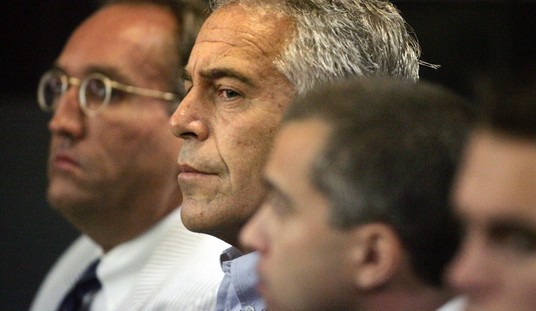
Today will mark 50 years since the assassination of one of America’s most influential heroes, Dr. Martin Luther King, Jr.
A half century.
So much has changed in that time. It isn’t hard to imagine Dr. King being incredulous at how much has changed since he marched on Washington and in the streets of urban and rural America, for better or for worse.
Would he be upset about what hasn’t changed?
People are still angry. People are still obsessed with race over character. People are still segregating themselves despite integration being enshrined in federal law. Black social justice groups like Black Lives Matter actually actively work to set up segregated “safe spaces” where white people and other races aren’t allowed.
What would Dr. King think of all that? What would he think of his legacy, of how his words have been interpreted, of how his proteges have gone on to become race hustlers using “the cause” as a means to enrich themselves rather than their communities?
I think it’s time to stop asking what Dr. King would think of this or that. I think the real question in 2018 should be, “Does it matter?”.
Well…does it? Does it matter to anything we do from this point on what Dr. King would have thought?
The difficult truth is, it does not. Activist Bree Newsome recently wrote about the generational “activist gap” at The Atlantic, saying that as times have changed so have tactics. This has created a bit of a rift between King’s generation of activists and the current “Black Lives Matter” generation.
While I agree with very little of Newsome’s ideology or activist tactics, I think she is making a very important point. It is imperative that we honor the lessons of the past while dealing with the realities of the present. We can treat King’s legacy with the proper reverence without idealizing that legacy.
2018 America is vastly different from 1968 America…and thankfully so. Black Americans have come a long way. Complaining about “microaggressions” and cultural appropriation are luxuries my grandparents’ generation couldn’t have even dreamed about. The way we talk about race and deal with race is vastly different 50 years after that brutal assassination.
The challenges black Americans face are also very different. They no longer encompass just racial disparities, but economic disparities, the degradation of the black nuclear family, and opportunity and choice in education. Our constitutional rights have been restored to us, but our place in the American story is still very much being shaped.
The left and the right are quite fond of using Dr.King’s legacy to hammer home their competing political agendas. When the left attacks Christianity and demands racial quotas, the right counters with, “King’s activism was a direct result of his faith,” and “Content of character!” When the right attacks violent protests like those in Ferguson by touting King’s legacy of non-violence, the left responds with King’s socialist leanings and claims that he was moving away from his adherence to non-violent protests in the final days of his life.
No one is right and no one is wrong. Those who knew King best and talk about how his mindset might be today are still only guessing. No one knows how time and circumstances can change a person. Think of how different you were 15, 20, 25 years ago. Look at King’s close ally, Jesse Jackson. Years ago he was vehemently opposed to abortion, specifically as it pertained to the erasure of the black community. Now he advocates for abortion as a civil right.
People change.
It’s easy to ascribe permanent qualities to a man who was murdered before he turned 40. He’ll never have the chance to outgrow his ideas, or grow into new ones. We can project anything we want onto his legacy. There is no Martin Luther King, Jr. around to refute or confirm any such projections.
This isn’t to say that we should lend any less credence to King’s incredible legacy. He is a national hero for a reason. He deserves to occupy the same space of reverence we reserve for our founding fathers and suffragette mothers.
But it’s time to stop asking what he would think of this or that. It is a useless exercise, and frankly, it weakens the discussion. It really doesn’t matter what he would think, because he cannot think for us anymore. Someone stole his life, and we no longer have that privilege.
It’s time to think for ourselves. It is time for black America to stop looking for the “next” Dr. King and it’s time for political America to stop holding his legacy hostage for sake of winning arguments.
What do we think? What does effective advocacy look like in 2018? Who are we to each other now and who do we want to be to each other in the future? Do our anger and rage bring us closer to our goals, or further away? What are our goals? As black Americans? As white Americans? As Americans of any ethnic or racial background?
These are the questions to ask ourselves, and each other. We’re the only ones that have the answers. It is time to let Dr. King rest in the momentous accomplishments of his age. He deserves as much and so does his family. They certainly don’t deserve to have their name dragged through the nastiness of political mud-slinging every time we want to talk about race in this country.
For my part, I would love to see a day when we don’t harbor so much rage toward one another based on how we look. I believe it is a reality we should strive for, but will never see on this side of heaven. Nevertheless, I will continue to choose grace, tolerance, and humility even as our society continues to choose bitterness and selfishness.
But that’s just my two cents.
What do you think?














Join the conversation as a VIP Member